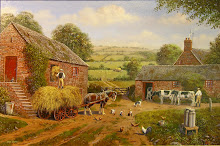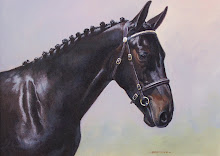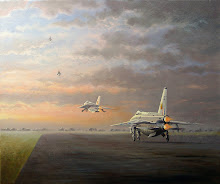Saarlouis Spring 2002
It was one of those pleasant evenings that I so enjoy when visiting Europe, warm but not too humid. Saarlouis is in Germany, not France, as its name might imply, and is the home of the giant Ford factory, where Britain’s favourite family car, the Focus, is assembled. http://bit.ly/1U3EsP
I strolled out of the hotel foyer and crossed the road to join my colleagues, Rob and Amric, who had taken a table at the end of the row, nearest the hotel entrance. We ordered drinks. The conversation revolved around suitable restaurants for our evening meal and tomorrow’s meeting, across the border, in France. I felt relaxed and happy.
Our drinks had arrived when a loud voice, from two tables away, interrupted our discussion.
Our drinks had arrived when a loud voice, from two tables away, interrupted our discussion.
‘Ach!.. You English!’
We turned, as one, to face the intruder. He was of average build with dark hair and wore black rimmed spectacles. It was immediately obvious that he was well ahead of us in alcohol consumption.
‘You from Ford, yes?’ Before any of us could reply, he launched into a tirade. ‘Why is it that you English always sit away from us German people? What’s the matter with you? Why don’t you come and sit with us? We could talk about things...Football...The weather... yes? You like to talk about the weather.’ He gestured for us to join him at his table. ‘Come over here. I can practice my English with you.’
‘No,’ I replied. ‘You laid down the challenge and there are three of us, so you come over here!’
‘No,’ I replied. ‘You laid down the challenge and there are three of us, so you come over here!’
He got up, picked up his drink, bumped his way between the tables and slumped into the seat next to me. I introduced myself and the others. He said his name was Ulrich.
He glared at me.
‘Why is it you don’t like us Germans? Is it still because of the war?
My mind flicked back to the scene from ‘Faulty Towers’ with John Cleese repeating, ‘don’t mention the war!’ Rob laughed at him from across the table.
‘How can you say that?’ he said. ‘I have a German boss...In Koblenz!’
‘And I work for a German company!’ exclaimed Amric.
‘Yes, he works for ZF Lemforder,’ I said and followed up by announcing that I had been with BMW, for three years, before joining Ford.
‘And, what’s more, Rob here,’ I gestured across the table, ‘is Welsh; he’s just as much a bloody foreigner as you are!’
Everyone laughed except Ulrich who just looked deflated.
It transpired that our new friend was the manager of the Deutsche Post depot, within sight of where we were sitting. We soon discovered that he had been deeply offended by the negative reporting, in the British media, surrounding the forthcoming football match between England and Germany. The tabloids had used all the stereotypes and Nazi allusions to unsettle the opposing team. It had not gone down well in Germany.
‘Just because we have one right wing politician,’ Ulrich said, ‘you think we have all gone back to this!’ He lurched to his feet and gave a Nazi salute.
I had noticed this kind of lingering sensitivity, about the country’s past, during a number of previous visits to Germany; a kind of national collective guilt that had, obviously, been passed on to the younger generation.
The conversation moved to less contentious issues until Ulrich announced that he must go, as his wife was waiting for him. We were followed by amused smiles, from the other tables, as we got up and went our separate ways.












